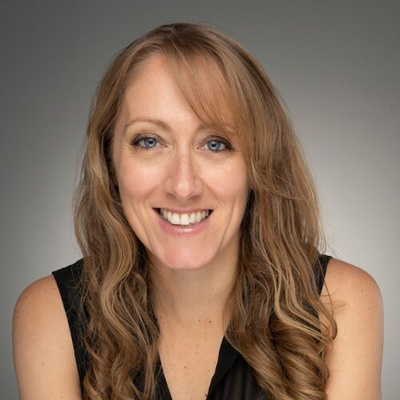Richard Dagenais: Mastering Creativity

Welcome to a special encore presentation of the StageLync Podcast! Veteran creator and artistic leader Richard Dagenais shares his journey from ballet dancer to senior roles at Cirque du Soleil and now Vice President of Creation at Cirque Éloize. With over 35 years in live entertainment, Richard talks about building a post-performance career, the balance between artistry and management, and why keeping the audience experience at the heart of the industry is key to its future. Check out this preview, and don’t miss the full episode next week!
You started as a ballet dancer — how did that path unfold, and what did you take away from it?
A: My journey into dance was unconventional. I grew up in a non-artistic family, but music was always present. I wasn’t a great musician, but a dare from a friend led me to take a dance class, and I loved it. While at university in Winnipeg, I kept taking classes for fun and eventually applied to the Royal Winnipeg Ballet’s professional school at age 20. After graduating, I danced with the company for 12 years, touring internationally.
The experience taught me three major lessons:
Understanding Company Dynamics – Serving eight years as dancers’ representative with Canadian Actors’ Equity gave me insight into contract negotiations, mediation, and the balance between artistic needs and company realities.
The Audience Relationship – Performing showed me the addictive, reciprocal connection between artist and audience.
Arts as a Calling – I came to understand the deep societal, economic, and emotional value of the arts — it’s more than a job; it’s a vital part of community life.
How did you navigate the transition from performer to a new career, and what advice do you have for others facing that change?
A: Leaving the stage is daunting because performance becomes your identity. Many performers aren’t prepared — financially, mentally, or emotionally — for an abrupt end, especially due to injury.
For me, the years I spent as an Equity representative laid the groundwork. When I retired from dance at 32, I became a business representative for Canadian Actors’ Equity. This gave me a new purpose and allowed me to apply my advocacy skills in a professional context.
My advice:
Build “secondary equity” while performing — develop skills, knowledge, and networks outside your main discipline.
Plan for Plan B — even if you perform into your 40s, be ready for the possibility of an earlier transition.
Save financially and prepare emotionally for life beyond the stage.
How did you move from contract negotiation into creative and artistic leadership roles at Cirque du Soleil?
A: It was a mix of preparation and fortunate timing. A bilingual friend suggested I apply for a Cirque role in contract administration. My Equity experience made me a strong fit, and I joined Cirque, working in contract negotiation for four years.
From there, I transitioned into managing auditions, then became an artistic director on tour — a role that’s about 70% management and 30% artistic oversight. An artistic director in that setting isn’t creating new work but maintaining the original creative vision, inspiring artists, and ensuring show quality.
The credibility I had from being a performer, plus my ability to manage large groups and navigate complex dynamics, helped me earn trust. Over 18 years at Cirque, I progressed to senior artistic director and eventually creative director in the events department, applying skills from each role to the next.
What is Cirque Éloize, and how is it adapting in today’s entertainment landscape?
A: Cirque Éloize, founded 30 years ago in Montreal by graduates of the National Circus School, set itself apart by creating poetic, message-driven shows for traditional proscenium theaters rather than arenas or big tops. Notable productions include Rain, Nebbia, and iD.
As Vice President of Creation, I support founder Jeannot Painchaud’s vision, bring creative teams together, and explore new formats. The pandemic was a wake-up call: our work relied entirely on live audiences, and when that stopped, we had to innovate.
We began diversifying into immersive experiences, such as a Jacques Cousteau-themed installation that was a huge success, and collaborations with institutions like Montreal’s planetarium. While touring has resumed — with a new show rooted in Magdalen Islands’ legends and music — we continue to look for ways to apply our creative DNA beyond traditional stage shows.
What do you love most about your work, and what would you change about the industry?
A:
Favourite Aspect – Creating and improving the moment where artists meet audiences. It’s like a marriage: it needs nurturing before, during, and after the show. The audience’s experience starts with buying a ticket and continues after they leave. Strengthening that relationship is what drives me.
What I’d Change – The industry’s focus when leadership shifts from a passionate founder to shareholder-driven management. Too often, profitability becomes the primary goal, and artistic quality becomes secondary. Small cuts to the audience experience might seem harmless, but over time they erode trust and engagement.
My belief: Focus on delivering the best possible experience, and profitability will follow as a “beautiful consequence.” Prioritizing art and audience connection is essential for long-term success.
Key Takeaways:
A performer’s career can end abruptly — build secondary skills and networks early to prepare for life after the stage.
The audience relationship is central to live performance and must be nurtured before, during, and after the show.
Artistic director roles in large companies are often 70% management and 30% artistic oversight.
Diversification is vital for resilience — Cirque Éloize expanded into immersive experiences after the pandemic halted live shows.
Prioritizing artistic quality and audience connection leads to long-term profitability; profit-first thinking risks eroding trust and engagement.
Editor's Note: At StageLync, an international platform for the performing arts, we celebrate the diversity of our writers' backgrounds. We recognize and support their choice to use either American or British English in their articles, respecting their individual preferences and origins. This policy allows us to embrace a wide range of linguistic expressions, enriching our content and reflecting the global nature of our community.
🎧 Join us on the StageLync Podcast for inspiring stories from the world of performing arts! Tune in to hear from the creative minds who bring magic to life, both onstage and behind the scenes. 🎙️ 👉 Listen now!
